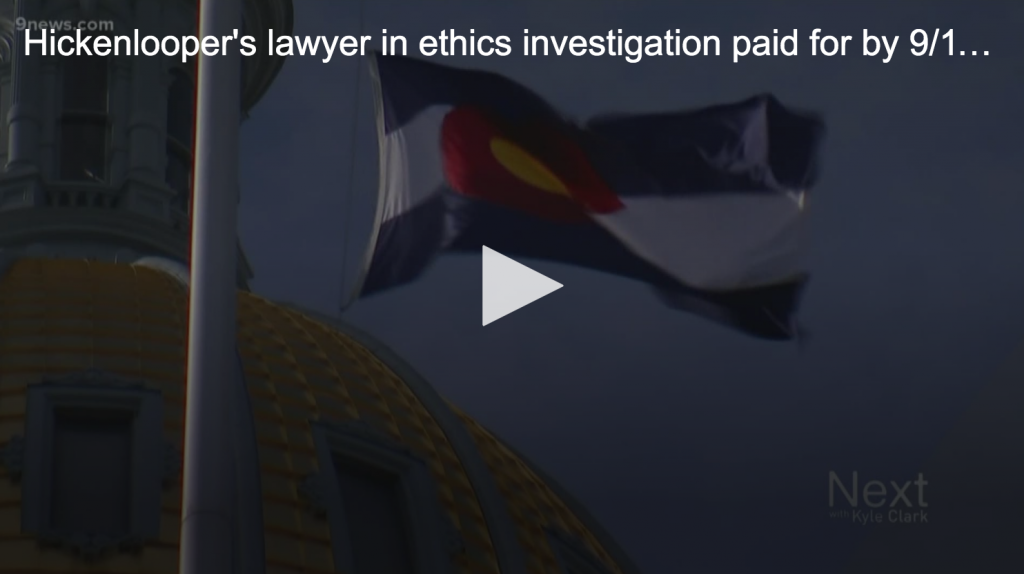Hickenlooper’s attorney in ethics investigation is paid for by post-9/11 economic recovery fund

DENVER — A taxpayer-funded attorney is defending former Colorado Governor John Hickenlooper during an ethics investigation into trips he made in 2018. The state attorney general’s office hired Mark Grueskin, a well-known Democratic elections attorney, to defend Hickenlooper. According to current Governor Jared Polis’ office, Grueskin has billed the state for $43,390 so far, charging […]
Money for Hickenlooper’s attorney is from federal fund meant to help Colorado economy post-9/11

John Hickenlooper’s attorney has been paid $43,390 — at a rate of $525 per hour — in taxpayer money to defend him before the Colorado Independent Ethics Commission as part of an arrangement that dates back to the former governor’s time in office. It’s common for Colorado elected officials to be represented by government lawyers, or by […]
